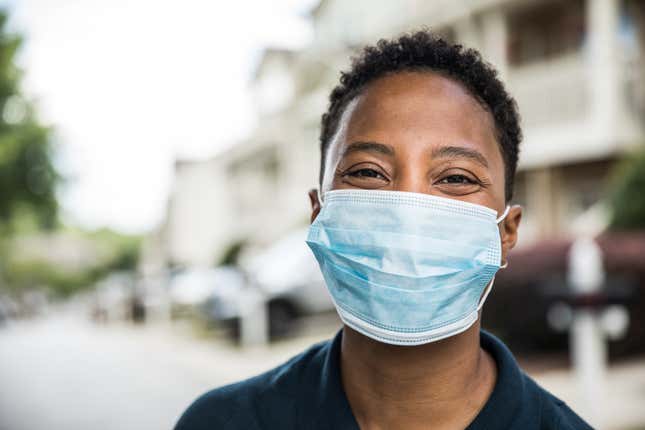
Patience appears to be in short supply in Washington right now. With only a month left before the national emergency declaration was set to expire, President Joe Biden signed a resolution ending one of the COVID-19 declarations. Before everyone starts panicking (or cheering?), it’s worth trying to unpack exactly what that means for Black Americans.
Because we’re here to help over at The Root, here’s three things you need to know;
Does This Impact The Public Health Emergency?
Aside from the obvious question of why lawmakers couldn’t just wait a month for Biden to end both COVID-19 declarations as scheduled, it’s also worth unpacking what this resolution does and doesn’t do.
The first thing to know is that there is more than one emergency related to the COVID-19 pandemic. The White House has clarified that this resolution only ends the national emergency, not the separate public health emergency.
That matters because the public health emergency covers a lot of programs we’ve become accustomed to over the last few years. For example, the public health emergency enabled the government to provide a bunch of coronavirus-combatting health care measures, including free COVID-19 testing, vaccines, and treatment, regardless of your insurance status. Although, it might not be a ton of comfort that will stay in place until May 11th.
Will Black Americans Be Impacted?
Ok, so now that we’ve clarified that this just impacts the national emergency declaration, what does that mean for Black folks?
Well, the impacted programs might not immediately jump out as having much to do with the pandemic itself. According to a White House official who spoke to NBC News, the end of the declaration will impact “mortgage forbearance at the Department of Housing and Urban Development and relaxed Veteran Affairs Department requirements for home visits to evaluate eligibility for caregiver assistance.”
For those who don’t know, mortgage forbearance is just a fancy way of saying you get to delay or pause paying for your mortgage due to financial difficulties. It’s too soon to know precisely how much of an impact this measure will have. But it could definitely be cause for concern for Black Americans who relied on forbearance programs, especially now, as Black Americans struggle with bouts of high inflation.
What Happens To The Declarations On May 11th?
The really crucial thing to keep in mind is that no matter what, come May 11th, both emergency declarations will be over. Earlier in the year, The Root parsed through what Biden’s decision to let the national emergency and the public health emergency expire would do to Black Americans;
One big change: at-home testing. Under the current public health emergency, insurance companies must cover eight free COVID tests a month. Once that expires, you may have to start paying out of pocket for tests. So, word of advice: you might want to start picking up some COVID tests before your insurance starts handing you the bill.
Another significant change, according to the Kaiser Family Foundation, is that people without insurance will no longer be able to access “free COVID-19 testing, vaccines, or treatment.”
It’s worth noting that Black Americans have a roughly 10.9 percent uninsured rate, which is higher than that of white Americans.
Treating COVID-19 could also become more expensive for everyone, regardless of their insurance status. Depending on which state you live in, insurers won’t be required to cover the total costs associated with anti-viral treatments.
The declaration will also loosen government control over the production of vaccines. And while, for now, the vaccines will still be covered for people with private insurance, Medicare or Medicaid, the cost of the vaccines is expected to skyrocket without government oversight.
It’ll definitely be worth keeping a super close eye on the fallout from these measures ending.